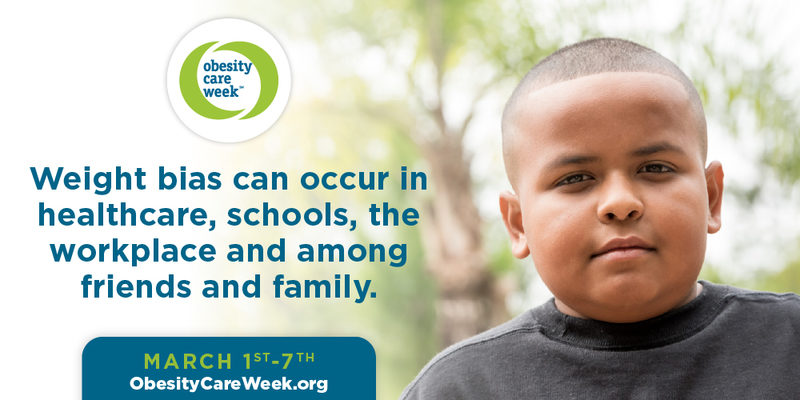This week, Your Weight Matters is helping to recognize Obesity Care Week. This is a national awareness campaign that aims to change the way society cares about obesity by:
- Providing science and clinically-based education
- Advocating for access to affordable and comprehensive care
Today, on March 2 of Obesity Care Week, the focus is weight bias. Have you ever taken the time to really think about weight bias? It is defined as negative attitudes, stereotypes and discriminatory acts aimed at someone simply because of their weight.
Most people who struggle with their weight have faced weight bias of some kind at some point or another. It can occur in all areas of life including school, healthcare, the workplace, and even among family and friends. It also takes many forms – verbal, written, media, online and more.
Why it Matters
Weight bias is NOT okay. It is dehumanizing and damaging. For a person who is struggling with their weight, it can prevent them from making healthy decisions and reaching their health goals. Weight bias can lead to physical and psychological health problems and promotes a social norm that sees higher-weight individuals as “less than.”
In the workplace, bias can mean lower pay, fewer promotions, or the rejection of a job offer even if the individual is the most qualified. In schools, it can lead to trouble concentrating and bullying from peers. Bias can result in depression, anxiety, poor body image and low self-esteem.
In addition, weight bias can prevent someone who is struggling with health impacts from their weight from getting the care they need. In healthcare, a lack of sensitivity can lead to:
- Delayed medical appointments
- Lower quality care
- Worsening health
Addressing Weight Bias
We all have a responsibility to call out bias when we see it. Schools and workplaces should have policies in place to protect against unfair treatment. Healthcare providers should strive for a bias-free environment that uses sensitive language, has furniture and equipment to accommodate all patients, and takes time to listen to their needs and concerns.
Bias Resources:
To learn more about bias, make sure you follow along with Obesity Care Week at ObesityCareWeek.org and CLICK HERE to sign up for OCW Alerts. You can also visit the Obesity Action Coalition website, Founder of Your Weight Matters, for additional information.






